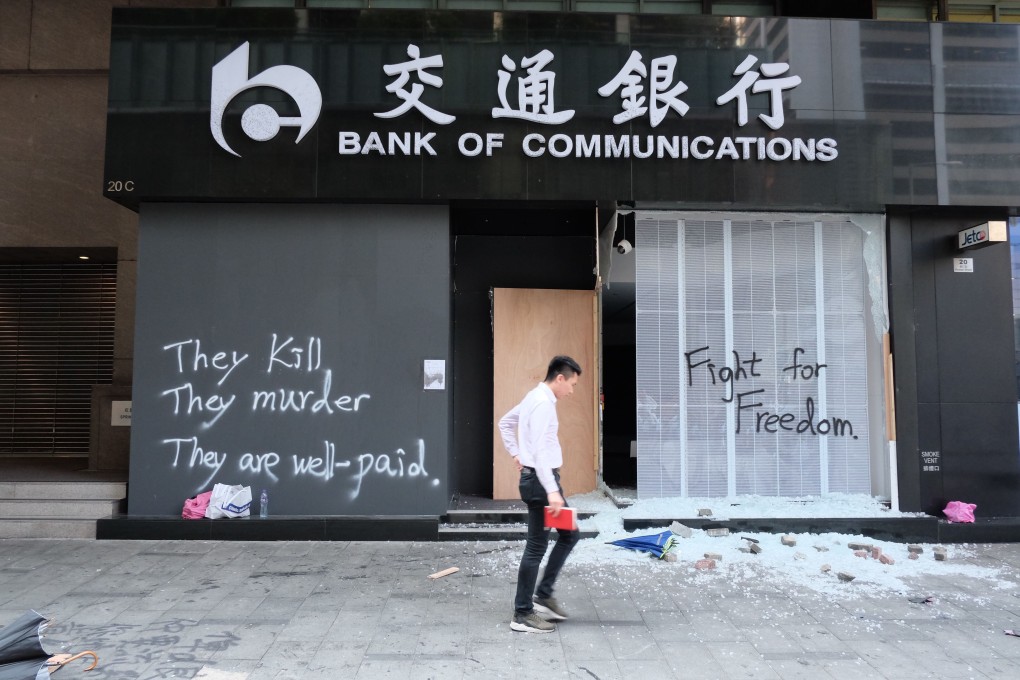Advertisement
Hong Kong stocks drop to three-week low as protests force closing of banks and suspension of school classes
- China stocks fall as well on trade war concerns
- Volatility index for Hong Kong stocks rises to a one-month high
Reading Time:3 minutes
Why you can trust SCMP

Zhang Shidongin Shanghai
Hong Kong’s stocks fell to their lowest level in three weeks, with volatility increasing and discounts to the mainland’s equities widening, as protests crippled the public transport service and led to a record number of bank branches to close.
The Hang Seng Index slid 1.8 per cent, or 493.82 points, to 26,571.46 at the close on Wednesday, the lowest level since October 23.
One bright note for the city’s stock exchange was drowned out by the protest chaos: Alibaba, China’s e-commerce giant listed in the US, has gotten approval to sell shares in Hong Kong in a secondary listing that will catapult the city back to the top of the world’s IPO rankings.
Advertisement
As anti-government protests rattled the city for a third straight day, a record 250 bank branches were closed on the day as a result of traffic paralysis, with one in five outlets of the 18 major banks including HSBC Holdings and Standard Chartered Bank being shut. The glass facade of the Bank of Communications branch in Central was smashed by bricks.
Meanwhile, the Education Bureau announced that all schools including kindergarten, primary and secondary as well as special schools will suspend lessons on Thursday out of safety concerns. At least 80 mainland Chinese students were evacuated by police from the Chinese University of Hong Kong by bus.
Advertisement
Advertisement
Select Voice
Select Speed
1.00x